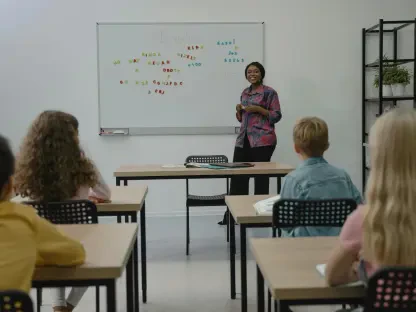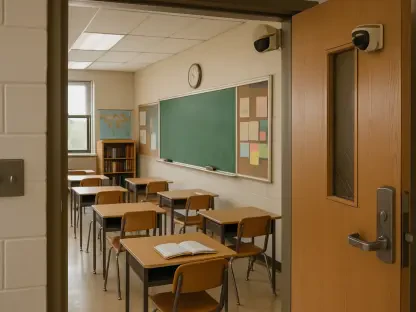House Bill 3 (HB 3), which has sparked widespread debate over its introduction of school vouchers, poses a significant threat to the Teacher Retirement System of Texas (TRS) and the funding of public schools. While much of the discussion has centered around how diverting public tax dollars to private school tuition may undermine public education, the potential damage to TRS, a crucial pillar of financial security for Texas educators, has not garnered enough attention. The implications for the retirement security of teachers and the financial health of the TRS system are profound and warrant a closer examination.
The Importance of TRS and Its Financial Stability
The Role of Consistent Contributions
The Teacher Retirement System of Texas (TRS) is integral to the financial stability and retirement security of Texas educators. It relies on steady contributions from active public school employees and the state to maintain its operations and fund future pensions. All full-time public school employees in Texas are required to participate in TRS, fostering a consistent inflow of contributions that help sustain the fund. This mandatory participation is critical, as it ensures that the system remains financially robust and capable of meeting its obligations to retired teachers over the long term.
However, the introduction of HB 3 could jeopardize this stability by reducing the number of active contributors. By channeling public tax dollars towards private school tuition, the bill threatens to reduce the workforce in public schools, leading to fewer active TRS participants. As public school job losses mount, the reduction in contributions would weaken the financial health of TRS. This destabilization risks future pensions for thousands of educators who rely on TRS for their retirement security, potentially resulting in severe financial consequences for current and future retirees.
Potential Consequences and Historical Examples
If fewer public school employees contribute to TRS, the system might face significant long-term instability. This could manifest in several adverse consequences, such as increased contribution rates for current teachers, reduced pension benefits, or even taxpayer-funded bailouts to shore up the system. Historical precedents from states like Arizona and Wisconsin highlight the dangers. In both states, expansive voucher programs led to pension shortfalls as fewer teachers contributed to their respective retirement systems, resulting in severe financial strain.
The absence of explicit protections or mitigations for TRS within HB 3 exacerbates these risks. Without measures to offset the potential reduction in contributors, the financial burden could spiral out of control. Policymakers must recognize that any weakening of TRS could have a far-reaching impact, threatening the financial security of educators who have dedicated their careers to public service. As Texas grapples with these legislative challenges, it is crucial for the state to consider the long-term repercussions on its retirement system and act to protect the interests of its teachers.
Broader Implications for Educators and Public Schools
Legislative Discussions and Educator Advocacy
Current legislative discussions in Texas have acknowledged the potential risks posed by HB 3 to TRS, yet no definitive solutions have been proposed to safeguard the retirement system. Various proposals aim to offset potential losses, but they lack the necessary measures to ensure the long-term stability of TRS. This uncertainty leaves educators in a precarious position, as they might bear the brunt of any financial instability through higher contribution rates or reduced pension benefits. The need for a comprehensive plan to protect TRS is urgent, given its significance to the retirement security of Texas educators.
Educators are being urged to actively advocate against HB 3, emphasizing its detrimental effects on their pensions in addition to the harm it could inflict on public school funding. Highlighting the threat to their future retirement security may galvanize wider opposition to the bill, uniting public school employees and stakeholders in a collective effort to safeguard TRS. By raising awareness about the potential consequences of HB 3, educators can play a pivotal role in influencing policymakers to reconsider the bill’s provisions and prioritize the financial health of TRS.
Call for Collective Action and Future Considerations
House Bill 3 (HB 3) has ignited considerable debate due to its introduction of school vouchers, which poses a serious threat to the Teacher Retirement System of Texas (TRS) and the financial stability of public schools. While most discussions focus on how redirecting public tax dollars to private school tuition can potentially undermine public education, there has been insufficient attention to the potential harm to TRS. TRS serves as an essential pillar of financial security for Texas educators, and the implications for both the retirement security of teachers and the financial health of the TRS system are critical. This aspect of the bill necessitates a more thorough investigation because the impact on the retirement system could be profound. The potential risks include reduced funding for TRS, which could lead to diminished retirement benefits or increased financial strain on educators. Thus, a closer examination of HB 3 is essential to fully understand its ramifications on public education and educator retirement security in Texas.









